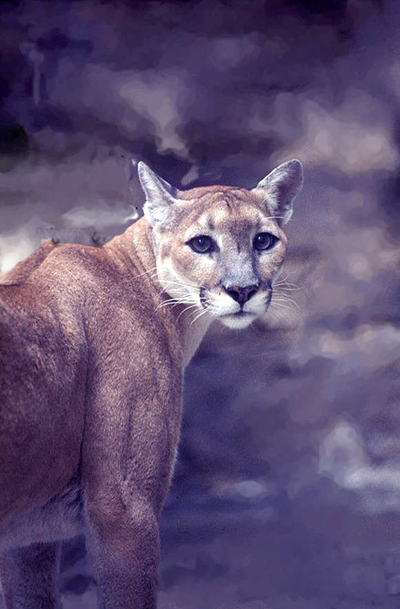
Comments from the public on the mountain lion proposals may be received until May 22 at 5:00 p.m. on the TPWD Public Comment Page of the TPWD website. Phone or email comments may be submitted to Richard Heilbrun at (512) 389-8104. (Photo by John Jefferson)
by John Jefferson
The March A&M-Kingsville’s Deer Research Meeting had a segment on Deer/Lion populations in four deep South Texas counties. A lion increase is expected. Only 10 % of deer are trophies, so lions don’t affect trophy deer populations. Coyotes eat more deer than lions do.
In 2022, the Federal Government banned possession of mountain lions by individuals.
By the January 2024 meeting of the Texas Parks and Wildlife Commission, its members were aware of concerns about canned hunts for mountain lions and public interest in more humane treatment of lions by trappers. Additional discussions led to the TPWD staff being instructed to present a proposed regulation at its May meeting. It’s on the agenda.
According to a TPWD press release, Texas law doesn’t prohibit canned hunting, meaning the capture and release of a mountain lion for hunting. TPWD is proposing a ban on canned hunts.
Texas also does not require traps set for mountain lions to be regularly checked.
Most reputable trappers already check traps often. However, concerns have been raised that some mountain lions are left to die in traps, an inaction which many consider inhumane. It’s hard to imagine anyone opposing a proposal to regulate inhumane treatment of mountain lions – or any animal.
The proposal requires trappers to ensure that lions are not kept alive in traps or snares for more than 36 hours. This proposal would not apply to traps that either don’t restrain a cat or ARE quickly lethal.
The proposal contains an exemption for traps that have a breakaway device based on a mountain lion’s pulling strength.
Curious about the proposal, I called a longtime friend, Richard Heilbrun, currently TPWD’s Wildlife Diversity Program Leader, who is carrying the water for TPWD on this proposal. Heilbrun is a twenty-plus – year employee of TPWD, and a fellowship awardee by the Rob and Bessie Welder Wildlife Foundation.
Richard said there have been some small private establishments keeping lions as either tourist attractions, to gather urine, or to train dogs to run released lions.
Some in the past have also tried to keep them as pets.
I answered an ad once for a pet mountain lion for sale. The lion was seemingly docile and playful, even getting into a tire-swing for sport. It didn’t take long for me to realize this formerly wild animal was not intended to be a human’s pet. Another time, I saw a caged lion on the sidewalk by a business in Mexico. The TPWD proposal would probably curtail those practices – at least in Texas.
I asked Heilbrun if the thirty-six-hour time limit on keeping a lion in the trap allowed too much time between checking traps. He said public comments so far have ranged from “too much to too little time” and that the time would have to be set by the Commission on Thursday, May 23.
Public comments may be made at that meeting, beginning at 9:00 a.m. at 4200 Smith School Road.
And if you haven’t seen the movie, “Secondhand Lions,” you oughtta!
JJ




